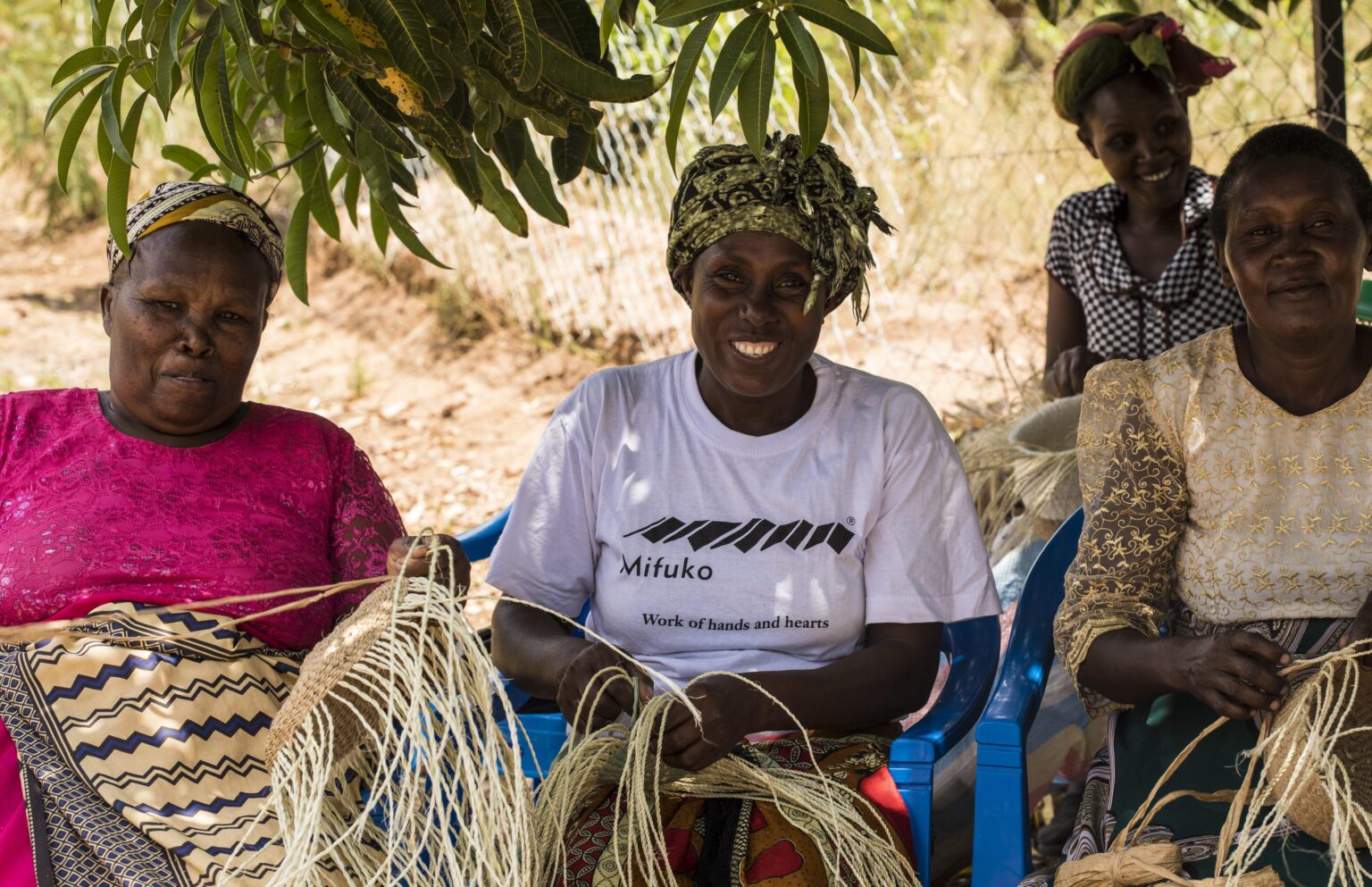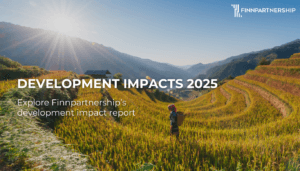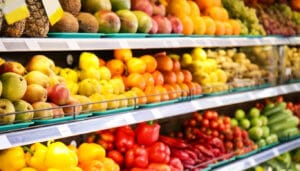Companies promote equality in developing countries

Equality can be promoted in developing countries in a manner that is economically viable. Four companies that have received Finnpartnership’s Business Partnership Support describe some practical measures that can be taken to improve women’s status in society.
The UN member countries have agreed on the 2030 Agenda for Sustainable Development, which will mobilise efforts to eradicate extreme poverty and to support sustainable development all over the world until 2030. One of the key goals (Goal 5) is to achieve gender equality, which requires strengthening the rights of and opportunities for women and girls. Despite some positive developments, women are still more likely than men to live in extreme poverty. Particularly in developing countries, there are big differences between men and women in terms of opportunities to participate.
Governments need to make decisions and take practical measures to improve equality, but the status of women can also be promoted through profitable business. Four companies that have received Finnpartnership’s Business Partnership Support describe why they think that promoting the 2030 Agenda goal is important.
Handicrafts bring in additional income for poor countryside communities
The promotion of equality is fundamentally related to improving the economic status of women. Sources of income are scarce in Kenya’s poor countryside. Selling products from their fields at their local market is the only way for most women to earn money.
Minna Impiö and Mari Martikainen, who graduated as designers, wanted to improve things. Just over ten years ago, they founded a company called Mifuko and started to have their design products made by craftswomen in Kenya. 600-650 women in regions that are among the poorest in Kenya make baskets designed in Finland. “Initially we operated in two provinces in the south of the country. Since the operating model proved successful, we have also applied it in the Turkana region in northern Kenya,” says co-founder of Mifuko, Minna Impiö.
Both regions have been affected by the consequences of climate change. The Turkana region has been particularly plagued by an exceptionally severe drought, which makes farming difficult. “Women receive regular income from handicrafts, which also helps families to survive the years when crops fail.”
Impiö says that the women are highly-skilled basket weavers. They do not need to leave home to do the job but they can do it between other jobs. It is also easy to take a partly-woven basket along to the market or when fetching water.
Craftswomen who work for Mifuko have formed groups that meet regularly. Belonging to a group is important for mental health, and it also provides financial security. Members pay small sums to a communal pot, from which they can take out a loan if they face a difficult situation such as having to pay hospital bills.
Mifuko has been operating in Kenya for more than ten years. Minna Impiö has seen the positive development that the Finnish company has also been contributing to. “Women have spent some of their income on initiatives such as henhouses so that they make more money from selling eggs and baby chicks. Small steps of progress are being taken in the villages all the time.”
According to Impiö, the job improves women’s self-esteem and financial autonomy. Women’s income directly benefits their families. “The income also improves the chances of them sending their children to school.”
Weaving mill offers work for disabled women
Disabled women in developing countries are particularly vulnerable, and they very seldom have opportunities to get an education or enter employment. In Ethiopia, for example, disability is often seen as a disgrace to the family, and people with disabilities may, consequently, be kept hidden from other people at home.
Sera Helsinki, which has its designer carpets made in Ethiopia, wants to improve the status of disabled women in society; it buys carpets from weavers that employ women with disabilities such as visual and hearing impairments. The weaving mills receive support from the Abilis Foundation, which promotes the improvement of the status of disabled people.
Anna Suoheimo, co-founder of Sera Helsinki, says that the idea from the outset was to improve the status of Ethiopian women and to pay weavers a higher salary for their work.
“The partnership involves much more than buying carpets. Craftswomen are taught professional skills, and they get support so that they can participate in society and understand their rights,” says Suoheimo.
“Finns can help; our society is quite equal, something that cannot be taken for granted in developing countries,” she continues.
Sera Helsinki orders carpets from five weaving mills, which are located in the capital, Addis Ababa. They employ around 160 people, mainly women.
Sera Helsinki has also started to develop the production of wool yarn for carpets in the Ethiopian countryside. “Our goal is for women with disabilities to be responsible for the entire production process from sheep farming to spinning. However, organising this is very challenging as the status of people with disabilities is particularly poor in rural areas. It’s even difficult to find them because they are often kept indoors at home.”
“We have also worked with disability organisations on this issue to enable us to launch the yarn’s production.”
Equality can be promoted with a partner
Women living in cities in developing countries are also often in a worse position than men in the labour market. Bevetrade Oy has noticed this. The company has partners in Vietnam that produce beverages for it. Managing Director of Bevetrade, Hanna Khalili, says that a prerequisite for partnerships is responsibility in equality issues and in all other issues related to workers’ rights.
“We started by touring local production facilities, where workers had long working hours and low wages. The working conditions also left a lot to be desired. For this reason we have spent a lot of time searching for a good and reliable partner,” says Khalili.
The company found a responsible local manufacturer, and the import of aloe vera beverages and coconut waters into Europe has grown at a steady pace. In Finland, Bevetrade products are sold in supermarkets.
With support from Finnpartnership, Bevetrade conducted an audit to review the environmental and social responsibility of a Vietnamese partner, and then compared the results with international standards. “We investigated issues affecting equality and well-being at work, for example. Our audit has helped our partner to further improve their performance, whereas we have been able to provide training in areas such as the improvement of production quality and working conditions. Everybody benefits when these issues are improved.”
“Another positive thing is that women also progress to more responsible jobs in their careers. For example, the person responsible for Bevetrade’s products is a woman,” says Khalili.
As a result of the audit in Vietnam, equality issues have been incorporated into Bevetrade’s strategy and the business model applied in developing countries.
“We now know how to systematically go through these things. Bevetrade is currently expanding its operations to Ecuador and Peru. We carefully audit all potential partners.”
You can choose a woman as a trading partner
Finnish companies can also promote equality by favouring women entrepreneurs as their trading partners in developing countries.
This can be done on the coffee roastery Olfactory’s online market, where small roasteries and coffee farmers in developing countries can trade directly with each other without any intermediaries.
“The marketplace that we’re building will sell coffee produced by both men and women, but roasteries can promote equality by choosing a female farmer as their partner,” says Benjamin Andberg, a roastery entrepreneur. “This is also beneficial for roasteries as women are often more diligent, which can be seen in the quality of their coffee beans. Promoting equality is also an essential part of responsible business, which is becoming an important issue for more and more customers,” Andberg continues.
The digital coffee market will allow small coffee producers in East Africa and Central and South America to sell their coffee through the service. Small roasteries can choose the coffee they want and agree on the price and other practical arrangements directly with the farmer.
“This ensures that the big players, who take a large part of the profits, are left out. Our main idea is to ensure that coffee farmers receive better income, because they do the hardest job in the production chain.”
First picture of the article Mifuko
Share on social media


